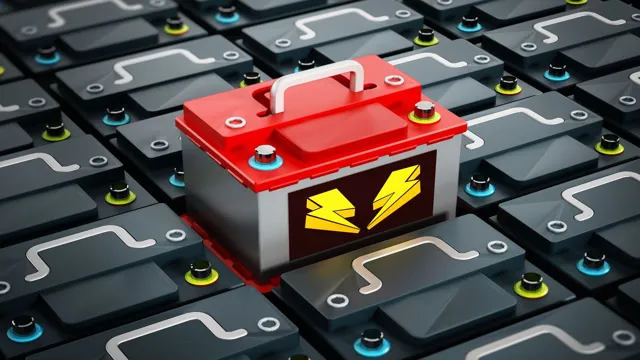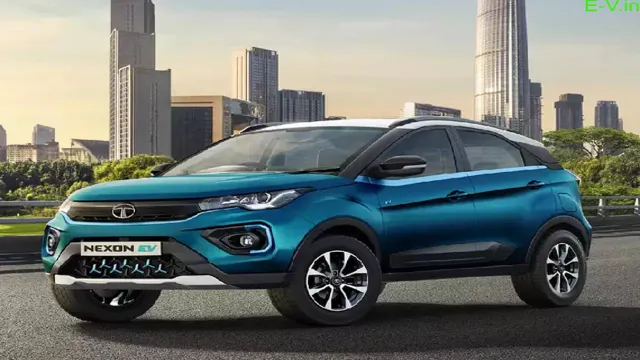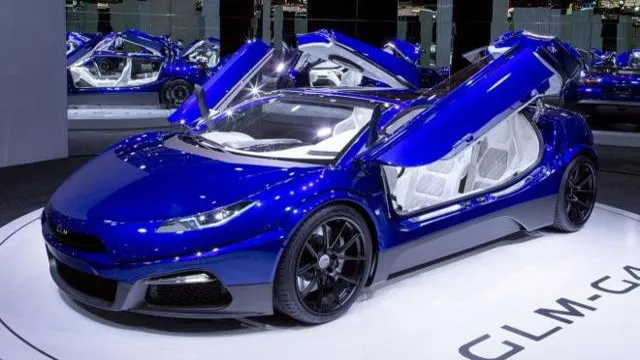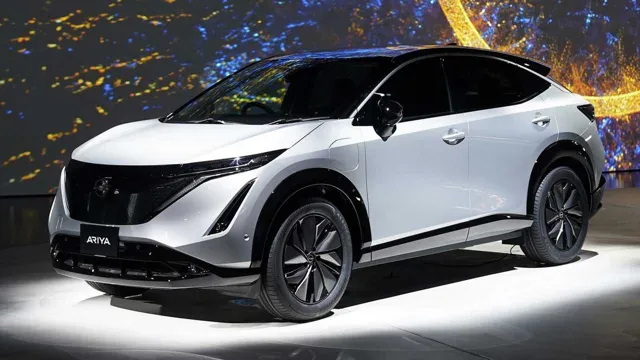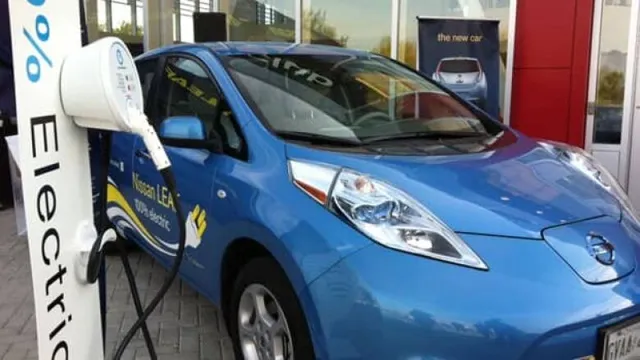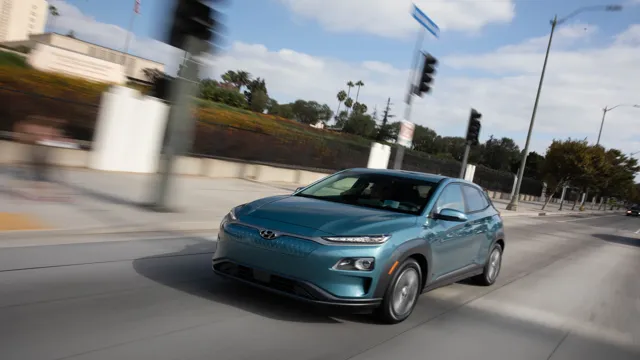Revolutionizing the Road: Unveiling the Latest Breakthroughs in Electric Car Batteries
Electric cars have become increasingly popular in recent years. Their low emissions and sustainable power sources have made them an attractive option for those looking to reduce their carbon footprint. While these vehicles are beneficial for the environment, their batteries have historically restricted their widespread adoption.
The limited range and lengthy recharge times have made them impractical for everyday use. However, recent technological advancements in electric car battery development have been promising. New breakthroughs indicate that these limitations may soon be resolved, bringing electric cars one step closer to mainstream adoption.
High Capacity Batteries
The latest news on electric car batteries is that there have been advancements in high capacity batteries, which is a game changer. This new generation of batteries will allow electric cars to travel longer distances without needing to recharge. In fact, these batteries have the ability to double the range of electric vehicles, making them more competitive with traditional gasoline-powered cars.
High capacity batteries are being developed by many different companies, including Tesla and Volkswagen, who are both investing heavily in research and development. These batteries are also expected to be more cost-effective, as they will require fewer battery cells to achieve higher capacities. As electric cars continue to gain popularity, the demand for high capacity batteries will only increase, driving further advancements in the technology.
Tesla’s 4680 Battery Cell
Tesla recently unveiled its newest battery cell, the 4680, boasting a higher capacity and energy density than their previous models. With a diameter of 46mm and a length of 80mm, the new cells pack in more energy while also reducing the need for additional materials. In fact, Tesla has stated that the 4680 batteries will eventually be used in all of their products, including cars, solar products, and stationary storage units.
This move towards higher capacity batteries is a major step forward for the electric vehicle industry as it will result in longer ranges and faster charging times. The 4680 cells have also been designed to be easier to manufacture, meaning that Tesla can produce them at a faster rate and at a lower cost. Overall, the introduction of the 4680 battery cell is a significant advancement in the field, and we can expect to see even more progress in the coming years as technology continues to improve.
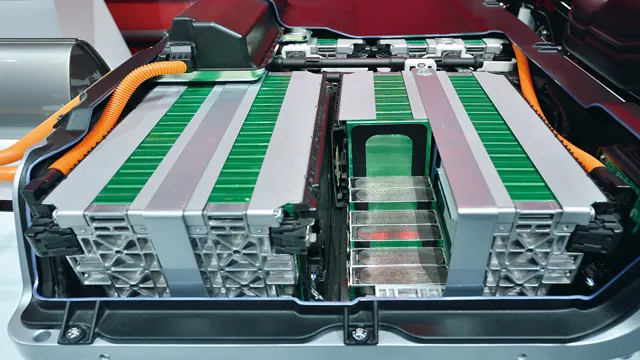
Solid State Batteries
Solid state batteries are a major breakthrough in the field of energy storage technology. Unlike traditional lithium-ion batteries, they use a solid electrolyte instead of a liquid one. This offers several advantages, including increased energy density, faster charging times, and better safety performance.
Solid state batteries have the potential to revolutionize the way we power our devices, from smartphones to electric vehicles. They can store more energy in the same amount of space, which means that electric vehicles could have longer ranges without sacrificing performance. Additionally, they are less likely to catch fire or explode, a major concern with current battery technology.
High-capacity solid-state batteries are still in the research and development stage, but they are showing great promise. As scientists and engineers continue to work on perfecting this technology, we can expect to see more and more applications for solid-state batteries in the near future.
Fast Charging Batteries
The latest news on electric car batteries shows promising developments in the world of fast-charging batteries. Manufacturers are working on creating batteries with charging times as fast as filling up a gas tank. This innovative technology can reduce the time it takes to charge an electric car, making it a more viable option for everyday use.
The advancements in fast-charging batteries, coupled with the increase in public charging stations, means that electric car drivers will be able to travel further distances before needing to charge their vehicle. This is a significant breakthrough for the electric car industry and a step closer towards a more sustainable future. With the demand for electric cars increasing, the race is on to produce even more efficient batteries to keep up with this growing trend.
Lithium Iron Phosphate Batteries
Fast Charging Batteries Lithium iron phosphate batteries (LiFePO4) are known for their ability to charge at an incredibly fast rate. Unlike traditional lead-acid batteries that take several hours to charge, LiFePO4 batteries can charge to full capacity in as little as 30 minutes, thanks to their low resistance and ability to accept high currents. This makes them ideal for applications that require quick charging such as electric vehicles and power tools.
Additionally, LiFePO4 batteries have a longer cycle life than traditional batteries, meaning they can withstand more charge and discharge cycles without significant loss of capacity. This means that they are more cost-effective in the long run than traditional batteries, as they need to be replaced less frequently. Overall, the fast charging capability and long cycle life of LiFePO4 batteries make them an attractive option for high-demand applications.
Silicon Anode Batteries
Silicon anode batteries are a hot topic in the world of technology due to their ability to charge rapidly. These batteries are designed to be more efficient than traditional lithium-ion batteries, allowing them to charge at a faster rate while also providing a longer lifespan. The key to their efficiency lies in the use of silicon in the battery anode.
Silicon can hold up to ten times more lithium ions than graphite, which is typically used in conventional lithium-ion batteries. This means that silicon anode batteries can store more energy while taking up less space, making them ideal for use in portable electronics and electric vehicles. Not only do these batteries have the potential to revolutionize the way we power our devices, but they may also have a significant impact on reducing greenhouse gas emissions by decreasing our dependency on fossil fuels.
Are you excited to see what the future holds for this fast-charging battery technology?
Graphene Batteries
Graphene batteries have taken the battery industry by storm due to their fast-charging capabilities. With conventional lithium-ion batteries taking several hours to charge, graphene batteries have the potential to charge in just minutes. These batteries are made from thin layers of graphene sheets, which have excellent electrical conductivity and can store a large amount of energy.
In addition to their fast-charging ability, graphene batteries also have a longer lifespan compared to traditional batteries. This means that they can be recharged more times without losing their capacity, making them more cost-effective in the long run. Graphene batteries are also lightweight and can be used in a wide range of applications, from smartphones and laptops to electric vehicles and renewable energy storage.
With the increasing demand for faster charging battery solutions, the future of the battery industry may lie in graphene technology.
Cost-Effective Batteries
The latest news on electric car batteries is all about cost-effectiveness. With technological advancements, electric cars have become more affordable, but the batteries remain expensive. However, there is hope on the horizon with new cost-effective batteries being developed.
Traditional lithium-ion batteries are being replaced with solid-state ones, which use solid electrolytes instead of liquid ones, thus reducing the risk of fire and increasing energy density. Moreover, battery manufacturers are experimenting with new materials, such as sodium rather than lithium, to reduce costs and environmental impact. These new developments are crucial in making electric cars more attractive to consumers and bringing us closer to a sustainable future.
Sodium-Ion Batteries
Sodium-ion batteries have emerged as a promising alternative for cost-effective energy storage solutions. Unlike expensive lithium-ion batteries, sodium-ion batteries use sodium ions as their charge carriers, which are abundant and inexpensive. This makes them an attractive option for large-scale energy storage applications like renewable energy and electric vehicles.
Although sodium-ion batteries have lower energy densities than lithium-ion batteries, they have a longer lifespan and are more durable. Moreover, they are safer as they don’t pose a risk of thermal runaway or fire hazards. As sodium-ion batteries continue to evolve, they could be a game-changer in the energy storage industry by offering a more affordable and sustainable alternative to lithium-ion batteries.
Zinc-Air Batteries
Zinc-air batteries are a cost-effective solution to the growing demand for reliable energy storage solutions. These batteries work by combining oxygen from the air with zinc in the battery, creating a chemical reaction that generates electricity. This technology has several advantages over traditional batteries, including a high energy density and a long lifespan.
Zinc-air batteries are also lightweight and can be made from inexpensive materials, making them an economically viable energy storage option. As a result, they are rapidly gaining popularity in a range of applications, including electric vehicles, grid storage, and portable electronics. While challenges still exist in improving the efficiency and lifespan of these batteries, the potential benefits make zinc-air technology an exciting field to watch.
Future Outlook for Electric Car Batteries
The latest news on electric car batteries is that the technology is constantly evolving and improving to provide longer ranges and faster charging times. Many car manufacturers are investing heavily in research and development to create better batteries that can provide a more sustainable and eco-friendly driving experience. The future outlook for electric car batteries is promising, with advancements in solid-state batteries and advancements in lower-cost manufacturing processes.
Solid-state batteries are considered the next big thing in EV batteries because they are safer, more compact and efficient than traditional lithium-ion batteries. This new technology could lead to electric vehicles becoming even more affordable and environmentally friendly over the next decade. However, it is important to note that there is still a lot of research that needs to be done to perfect the technology and make it commercially viable.
Nonetheless, it is exciting to see the tremendous progress being made and the positive impact it can have on the environment.
Conclusion
As the latest news on electric car batteries indicates, the future of electric vehicles is looking brighter than ever. With advancements in technology and increased investment in research and development, we can expect to see longer-lasting, more efficient batteries that allow for even greater driving ranges. And as more and more car manufacturers transition towards electric vehicles, we can also anticipate a decrease in greenhouse gas emissions and a healthier planet for generations to come.
So, let’s charge up and hit the road, knowing that we’re making a positive impact on both our driving experience and the environment.”
FAQs
What are the latest advancements in electric car battery technology?
The latest advancements in electric car battery technology include solid-state batteries, longer battery life, and faster charging capabilities.
How long do the latest electric car batteries last on a single charge?
The latest electric car batteries can last anywhere from 200 to 400 miles on a single charge, depending on the make and model.
Are electric car batteries recyclable?
Yes, most electric car batteries are recyclable and can be repurposed for other uses, such as storing renewable energy.
How much does it cost to replace an electric car battery?
The cost of replacing an electric car battery varies depending on the make and model of the vehicle. It can range anywhere from $3,000 to $20,000.

